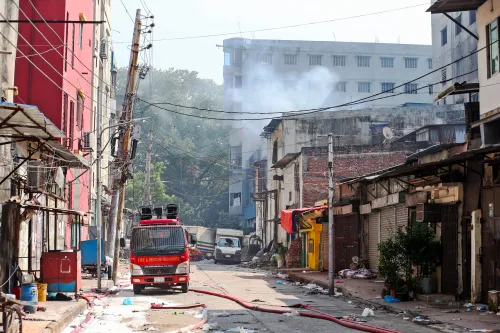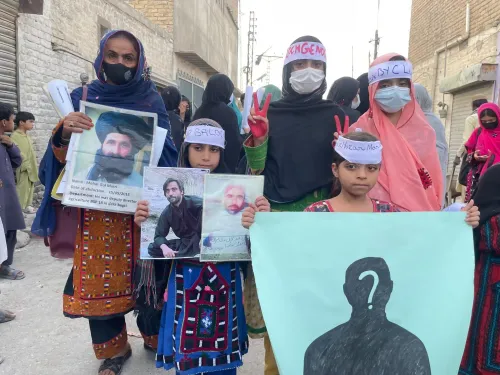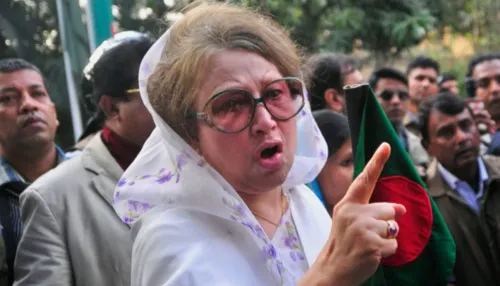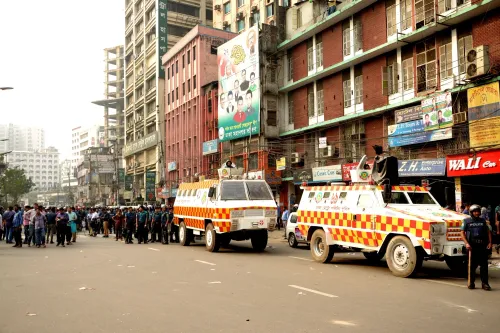What Led to Pakistan's Shehbaz Sharif Government's Ban on TLP?
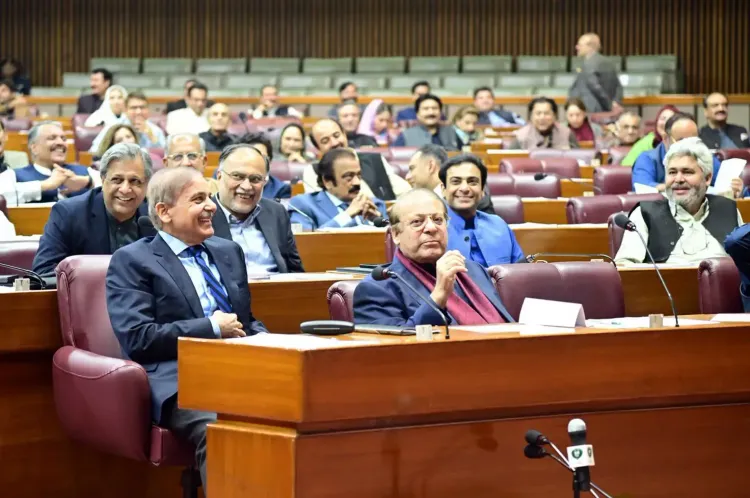
Synopsis
Key Takeaways
- Ban on TLP approved by the federal cabinet.
- Decision driven by national security concerns.
- Violence during protests in Muridke led to casualties.
- TLP's assets to be transferred to the Auqaf Department.
- Stringent measures against TLP's activities and communications.
Islamabad, Oct 23 (NationPress) - The federal cabinet of Pakistan, led by Prime Minister Shehbaz Sharif, approved a prohibition on Tehreek-e-Labbaik Pakistan under Article 17 of the Constitution due to concerns regarding national security. This decision follows a proposal from the Punjab government to outlaw the religious group, as reported by local media.
The cabinet convened in Islamabad on Thursday to assess law and order issues along with the recent activities of TLP. During this session, members were informed about the Punjab government's recommendation to impose a ban on TLP. The Interior Ministry provided a comprehensive report detailing TLP's actions and subsequently issued instructions to initiate the necessary legal processes, according to The Express Tribune.
Cabinet members also evaluated Pakistan's economic and political landscape, discussing developments following the recent ceasefire agreement with Afghanistan. Defence Minister Khawaja Asif shared insights regarding the terms of this agreement.
Last week, the Punjab government advised the federal administration to impose a ban on TLP after their Gaza March was forcefully disrupted by authorities in Muridke on October 13. A meeting presided over by Punjab Chief Minister Maryam Nawaz concluded that TLP leaders and members responsible for the deaths of police personnel and damage to public property would face prosecution in Anti-Terrorism Courts (ATCs).
The Punjab Police reported that TLP demonstrators engaged in violent acts in Muridke, resulting in the death of one Station House Officer (SHO) and injuries to 48 police and Rangers personnel, with 17 suffering gunfire wounds. Additionally, three TLP activists and one bystander were killed, and at least 30 others were injured.
TLP had organized a march towards Islamabad to protest outside the US Embassy in solidarity with Palestinians. It has emerged as one of the most notable religious-political movements in Pakistan in recent years, founded by Khadim Hussain Rizvi with the aim of defending the country's blasphemy laws.
Tensions escalated between police and protesters, leading to a government crackdown. Authorities executed a six-hour operation in Muridke to disperse demonstrators, resulting in numerous arrests, with TLP claiming the loss of several activists. In light of the violence, the meeting opted to place TLP leadership under the Fourth Schedule of the Anti-Terrorism Act (ATA), 1997.
The decision to transfer TLP's assets to the Auqaf Department, enforce a total ban on its promotional materials, freeze its bank accounts, and block its social media presence has now been made. Strict penalties will be imposed for any breaches of the Loudspeaker Act.

